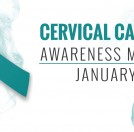Are health apps as effective as snake oil?
In the 1850s, America was full of self-proclaimed doctors peddling patent medicines that. Not only they might kill you that definitively rarely cured you. It took doctors and regulators decades to differentiate fraud from authentic and ban toxic products. Now, claims Dr. James Madara, head of the American Medical Association (AMA), we are entering a similar era, a “digital dystopia” of direct-to-consumer digital health products, apps, and ineffective electronic medical records.
He says “This is the digital snake oil of the early 21st century,” Madara SAID at the annual meeting of the country’s largest physicians group on June 11. “Just as in the mid-19th century when we separated the useful anti-toxins and compounds like aspirin from Stanley’s snake oil remedy, today we’re tasked with separating the digital snake oil from the useful —and potentially magnificent—digital tools.” Despite the potential for progress, he said, “appearing in disguise among these actual products are other digital so-called advancements that don’t have an appropriate evidence base, or that just don’t work that well—or that impede care, confuse patients, and waste our time.”
That’s a shot across the bow for entrepreneurs in digital health, which is being touted as a way for medicine to enhance patient care, rein in costs and improve peoples’ lives. There are some success stories to be sure. Robotic surgery, telemedicine, and better records have all made headway in hospitals. Apps show some promise as well. A 2015 study in the Journal of Medical Internet Research found that three out of nine app-only interventions led to a statistically significant improvement for people to manage symptoms of chronic diseases.








